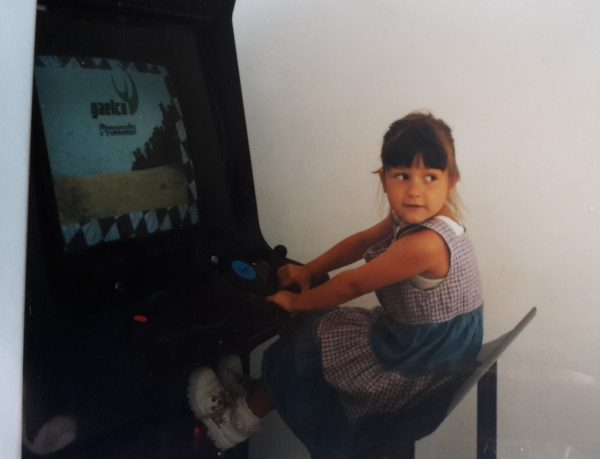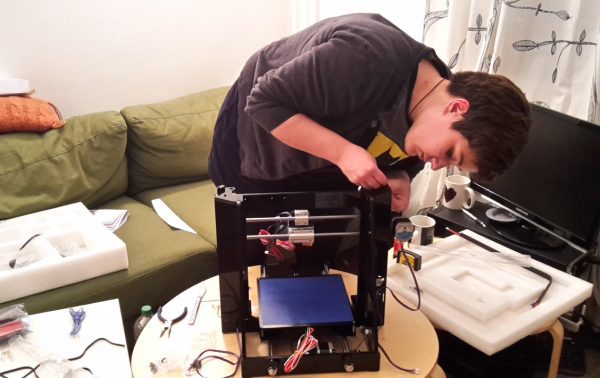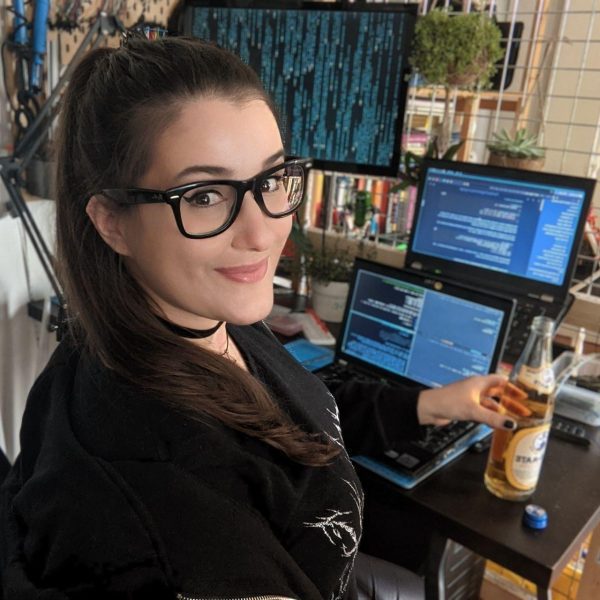I have always had a fascination for all-things tech. It’s no wonder one of my favorite childhood memories was when I received my first laptop for Christmas. Little did I know at the time how influential that gift would turn out to be.
As a child, I would disassemble every electronic device I could get my hands on, from CD players to radios – not even my parents’ beloved camcorder was safe from my explorations. Every time my dad left his computer unattended, I’d sneak into his office and play video games. A programmer himself, my dad seemed happy to have someone who wouldn’t get bored whenever he’d explain his work and go into detail about coding. He taught me that programming wasn’t something complicated or boring, nor was it “just for boys”. Rather, programming was meant to help solve problems and make life easier for everyone, by everyone – girls included.

Growing up, I considered myself lucky that my enthusiasm for programming was never questioned. But that was about to change.
Once I reached middle school, I suddenly found myself as the only girl in my science and tech classes. Teachers tried to explain it by saying “girls just aren’t interested in technology”. I was always questioned or dismissed, and certainly received my fair share of condescending comments from the boys in my classes. For the first time in my life, I felt like I didn’t belong in tech and unfortunately, it wouldn’t be the last.

By the time I finished high school, my self-doubt reached an all-time high. I thought if I were to pursue a career in the tech industry and failed, I’d only be proving that women aren’t capable of studying STEM. This fear, in part, deterred me from going all-in on computer science in college. In fact, I never considered it a viable option for myself. Instead, I was fully prepared to study Psychology in Vienna alongside my best friend. But after she was accepted into a university in Berlin, I went with my plan B – enrolling in Bioinformatics, as I figured it would be a great compromise.
However, after realizing I didn’t enjoy the “bio” component, I ended up right back to where my heart always lied – studying computer engineering.
My college experience as a woman in STEM was anything but simple. Whenever I’d make a mistake, professors would comment, “women just think in too complicated of a manner for programming.” And whenever I excelled at something, I was an exception because “women are usually bad at it.” It seemed I always had to give 200% of myself just to avoid people calling into question whether I deserved to be where I was.
Sure, coding is hard – and the elitist and sexist comments directed my way made didn’t make my college experience any easier. But the elements of computer engineering that I enjoyed – the creativity, problem-solving, and its ability to make life easier – were enough to help me continue my studies and ignore the outside noise.
 As the pandemic has proven, technology has become one of the most important parts of our lives – whether it be for work, education, or to connect with family and friends. During the past year and a half, I used my ThinkPads to post on Instagram and talk all-things tech in a fun and approachable way. I used cacti to explain algorithms and Instagram filters to teach terminal commands. I showed that it’s possible to be equally as excited about a new lipstick as a new microcontroller. To this day, I continue posting with the hope of inspiring other young women to become more involved in the field that I love so dearly. I look forward to continuing to engage young women through my partnership with Lenovo as one of its Innovators.
As the pandemic has proven, technology has become one of the most important parts of our lives – whether it be for work, education, or to connect with family and friends. During the past year and a half, I used my ThinkPads to post on Instagram and talk all-things tech in a fun and approachable way. I used cacti to explain algorithms and Instagram filters to teach terminal commands. I showed that it’s possible to be equally as excited about a new lipstick as a new microcontroller. To this day, I continue posting with the hope of inspiring other young women to become more involved in the field that I love so dearly. I look forward to continuing to engage young women through my partnership with Lenovo as one of its Innovators.
My hope is that future generations will never have to question their place in any area they love, tech-related or otherwise. To create solutions that work for everyone, we need as many different perspectives as possible. We can’t afford to leave women out of tech.
